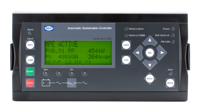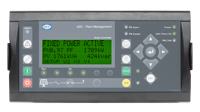KarmSolar reduce the complexity of low-emission hybrid microgrids with DEIF
Installing and operating hybrid microgrids to cover the electricity demand in off-grid locations isn’t quite as easy as it sounds. In the deserts of Egypt, however, KarmSolar is using DEIF devices and support to operate two plants that provide reliable low-emission power for local consumers – and reduce complexity for its operators.
The power for residential, commercial, and industrial applications needs to come from somewhere. If there is no utility grid, you need to deploy alternative energy sources. This is rarely as easy as it sounds, particularly if you want to combine several sources in a hybrid microgrid that saves fuel and reduces emissions.
However, solutions are available: When multi-utility solutions provider KarmSolar needed to design, install, and operate two hybrid microgrids in the Egyptian desert, they were able to develop a control solution that fulfils complex operational requirements and is easy to operate. Control devices and support provided by DEIF and its Egyptian distributor ATOS Generators played a key role in the project.
“After reviewing many EMS providers, we found that DEIF and ATOS were the only ones able to satisfy our demands for control topology and customise the control structure to match our needs,” says Mostafa Moheb, Technical Office Manager at KarmSolar.
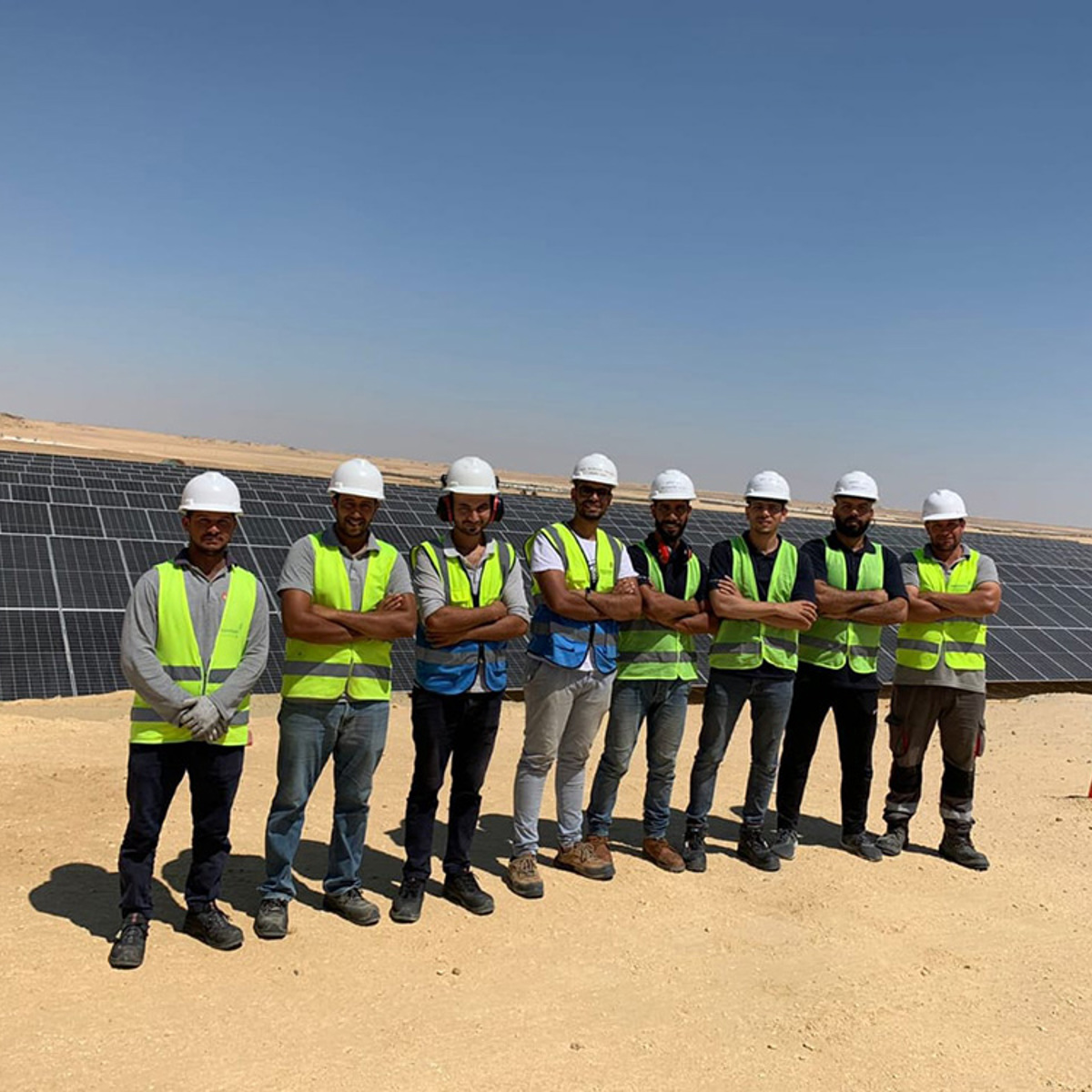
Covering the entire value chain
KarmSolar was founded in 2011 and is headquartered in the Zamalek area of downtown Cairo. The company specialises in made-to-measure solar energy solutions.
“We are covering the entire value chain of electricity generation, distribution, and management by designing tailored energy solutions for a wide range of partners in the agricultural, manufacturing, commercial, and hospitality industries,” says Mostafa Moheb.
Local power needed in the desert
The national grid in Egypt mainly covers the Nile Valley and Nile delta; it rarely reaches into the extensive desert to the east and west. The main reason is feasibility: Locations are not connected to the grid unless their size and capacity justify the connection.
Local solutions are therefore necessary – solutions like the two hybrid microgrids delivered by KarmSolar. The first one is at a poultry farm operated by Cairo 3A, an Egyptian company specialising in agricultural manufacturing and trading. Here, the microgrid covers the load demand through a 22kV OHTL (overhead transmission line) grid.
The second microgrid was installed near the town of Farafra; like the first one, it relies on a 22kV OHTL grid and supplies power for several agricultural consumers. Both microgrids use solar panels with Sungrow inverters, Sungrow battery energy storage systems (BESS), and MTU diesel gensets.
Complex control requirements
By combining solar, battery, and generator power, the solutions deliver reliable energy, and they can maximise the share of renewables, save fuel, reduce cost, and decrease the carbon footprint of the facility.
However, continuously monitoring, controlling, and coordinating the load and all power sources is very complex. For example, the control system must continuously monitor PV production, determine when to charge and discharge the BESS units, and start, synchronise, and power down gensets as needed.
Easy setup and optimised operation
KarmSolar designed a bespoke control system using DEIF devices: Both microgrids use ASC-4 Solar controllers for the PV inverters, ASC-4 Battery controllers for the BESS units, and AGC-150 Generator controllers for the gensets.
All controllers are connected via CANbus and can easily be set up for parallel operation as the controllers automatically detect each other over the network. The resulting energy management solution controls and coordinates all energy sources, optimising fuel consumption and prioritising renewable and emission-free power.
“The solar energy is used to power the loads directly during daytime while the surplus solar energy is stored in the batteries,” says Mostafa Moheb. “We start discharging the stored solar energy to power the load the moment the solar energy starts to diminish at the end of the day. When the batteries are fully discharged, the gensets start to power the load until the next day when the solar energy can power the load alone.”
A relief for the end customer
On both projects, an average of 40-65% of the load demand is covered by solar energy utilised directly or drawn from battery storage. KarmSolar operates both microgrids on power purchase agreement schemes, handling all investments and operations expenditures and maintaining full power availability. KarmSolar’s customers do not need to worry about operating energy sources; they just buy energy by the kWh through an energy meter installed on the point of common coupling.
“For our customers, the solution is a relief from all the issues and problems coming with operating diesel generators. It means they can focus on their core business,” says Mostafa Moheb. “And the power is very reliable as we have a mix of energy sources and can therefore count on several generation sources.”
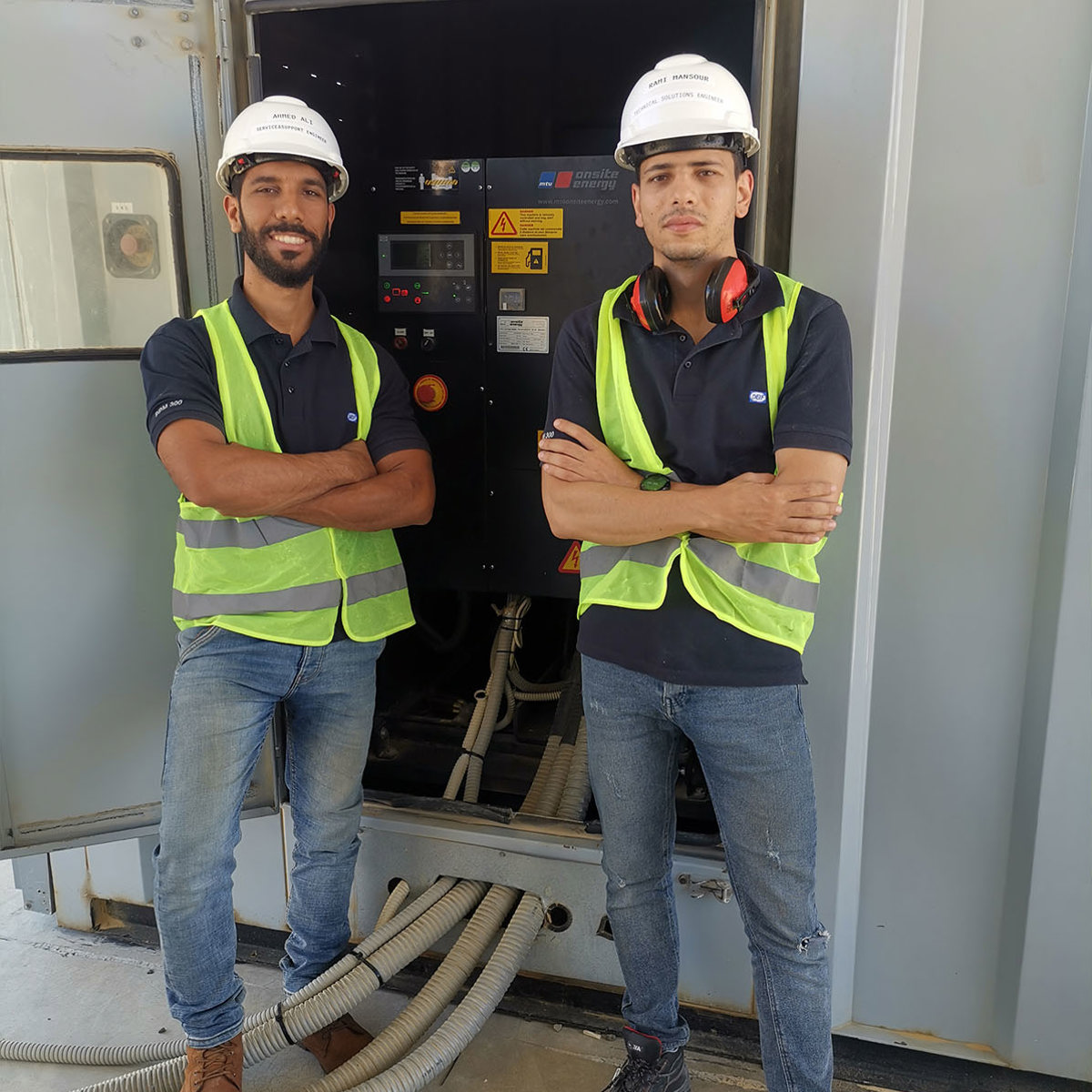
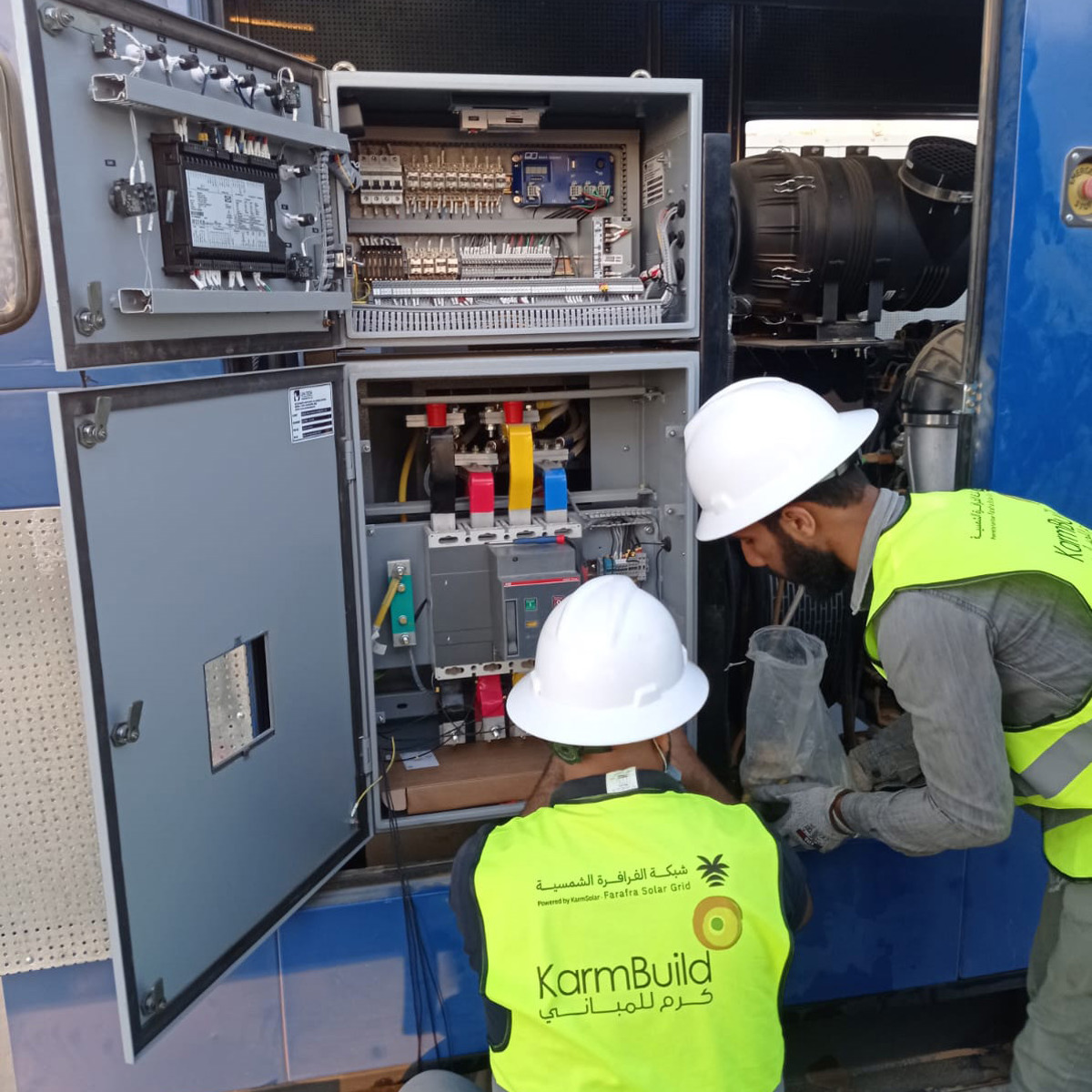
Indispensable devices and support
On both projects, the devices and support provided by DEIF and ATOS Generators proved to be indispensable for achieving full control of a complex application.
“I can happily say that we got the support we needed from ATOS Generators and DEIF,” says Mostafa Moheb. “There were a lot of compatibility challenges when we were commissioning the system, and with the help of the DEIF R&D team and technical support, they were all solved. Even though the systems required a little tuning to be running smoothly, in the end we were able to meet our targets.”
Flexible and easy to use
The DEIF devices played a key role during the design phase, but also in daily operations in both microgrids.
“The best feature of the DEIF controllers is that they can be customised to serve any purpose,” says Mostafa Moheb. “But despite the complexity of the systems, our technical operators on site are able to operate the controllers from DEIF after receiving operation training.”
Experience for future projects
The first microgrid at the Cairo 3A poultry farm was completed in November 2022, and the second one at Farafra one year later in November 2023. Both projects were installed in phases and are now running reliably, providing reliable low-emission power to consumers in the western desert of Egypt and reducing the day-to-day complexity for KarmSolar’s technicians. According to Mostafa Moheb, KarmSolar are satisfied with the outcome.
“We’re meeting the expectations that both projects were designed to serve,” he says. “And we have gained a lot of experience that we will definitely be using in our next microgrids. We will definitely consider working with DEIF and ATOS Generators again on future hybrid projects.”
KarmSolar
Founded: 2011
Headquarters: Cairo, Egypt
Activities: On and off-grid solar-integrated multi-utility solutions for businesses and communities
Employees: 113
Web: www.karmsolar.com
DEIF devices used
AGC-150 Generator advanced genset controller
ASC-4 Battery automatic sustainable controller
ASC-4 Solar automatic sustainable controller
Read our hybrid power guide
-

Contact us to discuss your options
- 90 years of energy pioneering
- Manufactured at the highest standards
- Superior quality
- Unmatched service and support
- Made in Denmark


